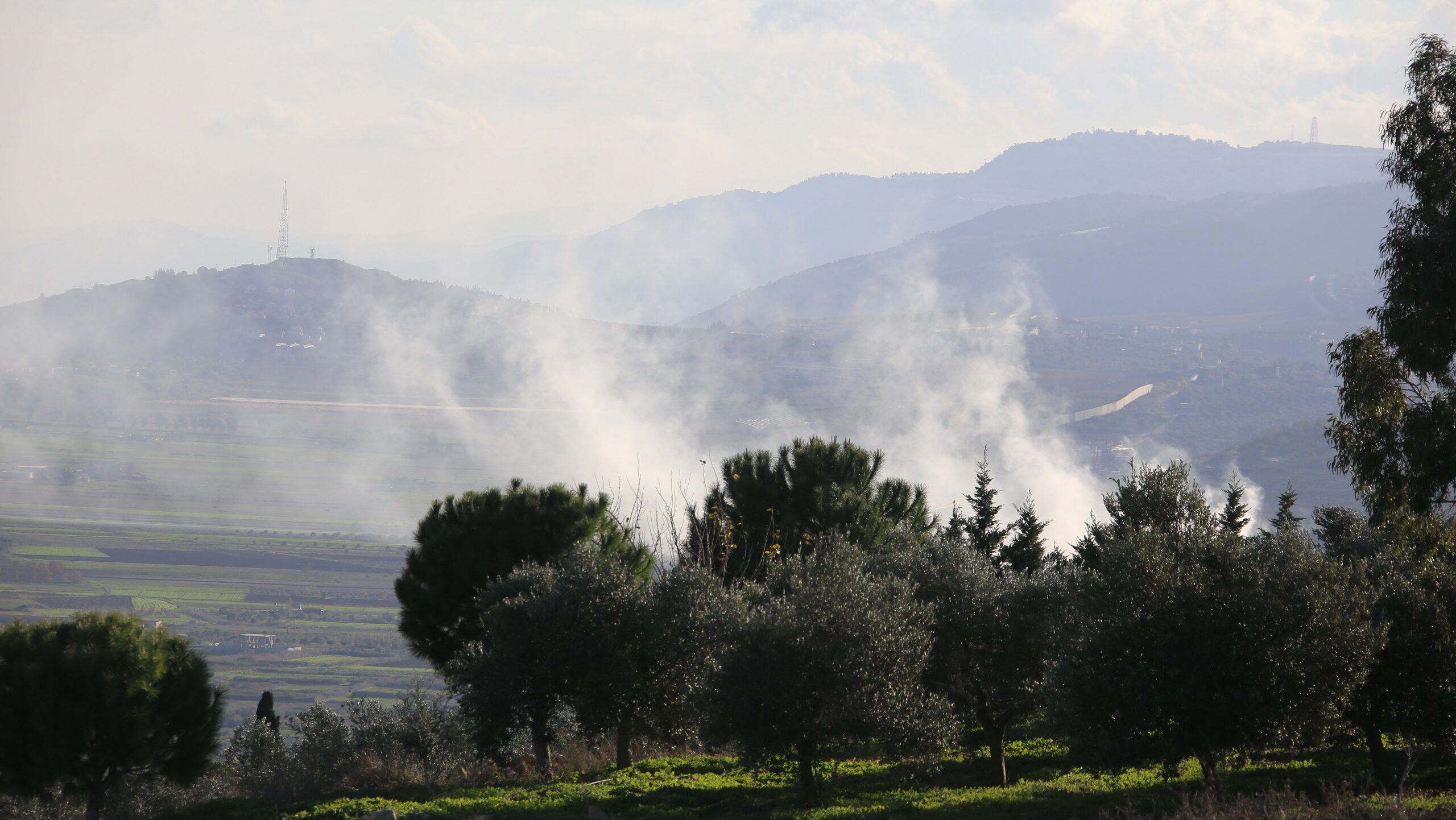Lebanese Villagers Struggle With Loss, Displacement Amid Ongoing Conflict
At least 83,000 people from villages on the Lebanon-Israel border have been displaced since the Israel-Hamas war began, and many are living in collective shelters, with no work, no income, and no idea of what remains of their homes or lands
[Tyre, Lebanon] Ahmed, 52, from a village on Lebanon’s border with Israel, is living in a school in Tyre that has been turned into a shelter for dozens of displaced families. Everything he owned has been destroyed: a three-story house belonging to him and his brother, another smaller building, and “eight goats [that] died as a result of the war and destruction.”
“I spent 22 years of my life building my house and in seconds it was gone,” Ahmed told The Media Line, while showing videos on his phone depicting the rubble that remained of his buildings. “I had a 500-square-meter house with three floors that I was sharing with my brother, and now there is nothing left.”
And yet, Ahmed considers himself fortunate, in that he knows what he had and what he lost. He and his brother have listed their losses in a letter signed by the town mayor, and they hope to receive something back. Others in the shelter do not know what remains of their houses and lands; most will not risk their lives to go and check.
When the Israel-Hamas war began after Hamas’ attack on Israel on Oct. 7, Hizbullah began firing rockets into northern Israel, and Israel has been bombarding southern Lebanon in response. At least 83,000 people in Lebanese border villages, 75% of the population of southern Lebanon, have been forced to flee their homes to save their lives. The vast majority have gone to stay with relatives around the country, while others have been spending their savings on rent. However, about 2% have now spent more than four months in collective shelters, mainly in Tyre, Saida, and Nabatieh.
“When the war started, the bombings were so intense that the children couldn’t stand the noise of the planes,” Amal, a mother of five from another Lebanese border town, told The Media Line. “First we rented an apartment but we couldn’t afford it, so we came here.”
The family has been living in a former classroom, and as Amal spoke she held one of her daughters, while her youngest, a baby, slept in a bouncer with a blanket covering its face.
“I don’t know what has happened to my house, but I want to come back, I need to return,” Amal said. “I see the videos of what is happening in Gaza and I can’t help but think about my children, my house.”
Since the war began, about 200 people have been killed on the Lebanese side of the Lebanese-Israeli border, most of them Hizbullah fighters. The region has also suffered heavy economic losses, with most of the farmers from the border villages losing their harvests and having their lands contaminated. Hizbullah has said it will compensate villagers directly affected for material losses such as the destruction of homes, farms, and cars.
Although the clashes have remained controlled throughout the war, the Israeli army has intensified its attacks recently, with a strike last week in Nabatieh killing 13 people, 10 of them civilians, including children.
What they all need is some money, work to earn money, and peace; we all need peace and rest
In the hallways of the school in Tyre, desperation is expressed in various ways. The adults show fatigue, and most do not have anything to do. The children constantly break out into violent fights.
“There is no work,” a representative of the town’s disaster management unit told The Media Line. “What they all need is some money, work to earn money, and peace; we all need peace and rest.” Supported by other organizations, the unit is in charge of more than 25,000 internally displaced people.
With Lebanon in a spiraling economic crisis even before the war, the current humanitarian disaster comes at the worst possible time. The government has not declared an official emergency, and there has been no systematic evacuation plan, aid or accommodation for the displaced. About one in five of the displaced people is a child, and 52 schools have closed in southern Lebanon, affecting thousands of students.
“An open war like the one in 2006 [between Israel and Hizbullah] would be much better, because it would give us ways to really help these people,” the municipal representative said.
“Since our state has not declared an emergency, all the NGOs work with us as if it were a normal situation and give us the same resources as before the war.”
He said that in four months, they had only been able to deliver a single food package to the displaced families.
Ahmed recalled the 2006 war as being relatively easier.
“Then, we also had to leave, but that war was easy, like driving a car,” he said.
His neighbor, Hamida, agreed. “That was different, because it lasted only 30 days, but we have been here for four months,” Hamida told The Media Line. “We want dollars, that’s all we want.”
Another displaced person, Naif, told The Media Line: “No one helps us and we don’t have any income because we have spent four months without working. My son is 11 years old and if he does not study all the material they send him through his WhatsApp group, he will not pass the next course; it will be another lost year.”


